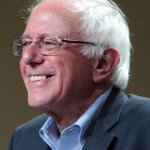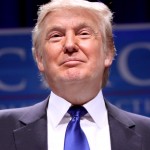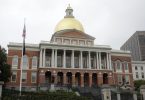General
Two more rounds of the 2016 primary season are underway today; the Democratic race stops in Nevada and the Republican candidates face off in South Carolina. Here’s what you need to know.
Nevada operates on a caucus system. Unsure of how this is different from a primary election? Watch this video that the Nevada Democratic Party put together.
The Nevada caucuses, both Democratic and Republican, are operated by the parties themselves rather than the state. For Nevada Democrats, the local caucuses today are just the start of the process; the delegates in the Silver State won’t officially be divided until after the county conventions on April 2. Read more about the Nevada Democratic caucus process here.
Voters in South Carolina use the more conventional primary system. The Palmetto State polls will open at 7 a.m EST and close at 7 p.m. EST. Voters will be required to show I.D. at the polls. South Carolina uses an open primary system, meaning a given voter can participate in either primary, but not both. There is no election day voter registration in South Carolina.
Democratic Race
There are 35 pledged delegates at stake for the Democratic candidates in Nevada; a candidate needs 2,383 total delegates to win the Democratic nomination. Nevada Senator Harry Reid, the Senate minority leader and the highest ranking democrat in Congress, has not endorsed either candidate.
Bernie Sanders
Vermont Senator Bernie Sanders currently leads the Democratic race with 36 pledged delegates* after two states. Sanders had struggled to gain traction in Nevada until his big win in New Hampshire; since then he’s been building momentum in the Silver State. As The Boston Globe reported, Sanders’ strong anti-Wall Street message may be resonating in a state was hit-hard by the 2008 recession.
Sanders’ website | Sanders’ Facebook page | Sanders’ Twitter account
Hillary Clinton
Former U.S. Secretary of State Hillary Clinton is second in the Democratic race with 32 pledged delegates after two states. Nevada has been described as a “firewall” for Clinton; the state has a much larger minority population than early battlegrounds in Iowa and New Hampshire. Throughout this election season, Clinton has polled higher than Sanders with minority voters. According to FiveThirtyEight, Clinton has a 72 percent chance of winning the Nevada caucus.
Clinton’s website | Clinton’s Facebook page | Clinton’s Twitter account
Republican Race
There are 50 pledged delegates at stake for Republicans in South Carolina; a candidate needs 1,237 total delegates to win the Republican nomination. The state is billed as a winner-take-all primary, but this is not quite the case. The winner of the popular vote in South Carolina is awarded 29 delegates. The remaining 21 delegates are distributed among the state’s seven congressional districts; if a candidate wins a district, the candidate is awarded three delegates for that district.
Three candidates (Carly Fiorina, Chris Christie and Jim Gilmore) have dropped out of the Republican race since the New Hampshire primary.
Donald Trump
Donald Trump, the businessman from New York, currently leads the Republican race with seventeen pledged delegates. Trump is the favorite to win South Carolina as he continues to benefit from establishment Republican voters being divided across multiple candidates. According to FiveThirtyEight, Trump has a 77 percent chance of winning the South Carolina primary.
Trump’s website | Trump’s Facebook page | Trump’s Twitter account
Ted Cruz
Texas Senator Ted Cruz is currently second in the Republican race with eleven pledged delegates. Cruz appears to have lost some momentum from his early Iowa win after finishing third behind Trump and John Kasich in New Hampshire.
Cruz’s website | Cruz’s Facebook page | Cruz’s Twitter account
Marco Rubio
Florida Senator Marco Rubio is currently third in the Republican race with ten pledged delegates. On Wednesday, South Carolina Governor Nikki Haley endorsed Rubio. Haley is widely respected in the Republican party (she gave the party’s response to President Barack Obama’s State of the Union address in January) and is a strong possibility to be a Vice Presidential candidate. Rubio will need a strong showing in South Carolina to get New Hampshire’s sour taste out of his mouth.
Rubio’s website | Rubio’s Facebook page | Rubio’s Twitter account
John Kasich
Ohio Governor John Kasich is currently fourth in the Republican race with five pledged delegates. Kasich is coming off of a strong second place finish in New Hampshire, but it appears he is trying to carry his momentum into the more moderate Midwest rather than the conservative South; he skipped a day in South Carolina to campaign in Michigan earlier this week.
Kasich’s website | Kasich’s Facebook page | Kasich’s Twitter account
Jeb Bush
Former Florida Governor Jeb Bush is currently fifth in the Republican race with four pledged delegates. South Carolina Senator Lindsey Graham, once a presidential candidate himself, has endorsed Bush. Graham’s political focus tends to be foreign policy and South Carolina has a much larger military presence than Iowa or New Hampshire; Bush will be playing to the military vote and hoping to win one of the state’s congressional districts.
Bush’s website | Bush’s Facebook page | Bush’s Twitter account
Ben Carson
Retired neurosurgeon Ben Carson is currently sixth in the Republican race with three pledged delegates. Carson has been fading in South Carolina polls in the days leading up to the election; there is speculation that he will be the next candidate to drop out of the Republican race.
Carson’s website | Carson’s Facebook page | Carson’s Twitter account
*This article does not account for unpledged “superdelegates” for either party because these delegates can change hands at any point before a party’s national convention.













